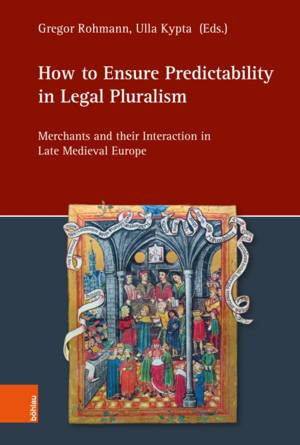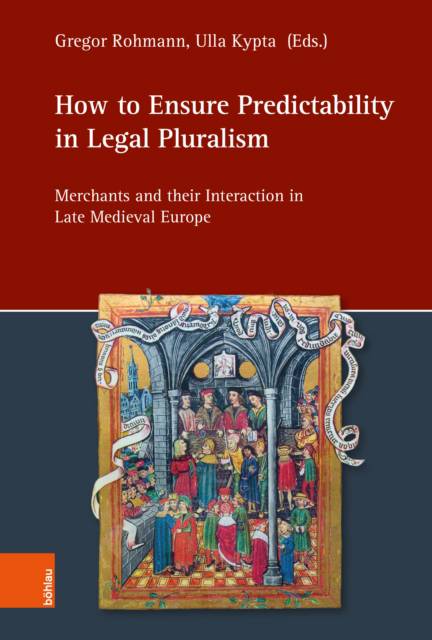
Bedankt voor het vertrouwen het afgelopen jaar! Om jou te bedanken bieden we GRATIS verzending (in België) aan op alles gedurende de hele maand januari.
- Afhalen na 1 uur in een winkel met voorraad
- In januari gratis thuislevering in België
- Ruim aanbod met 7 miljoen producten
Bedankt voor het vertrouwen het afgelopen jaar! Om jou te bedanken bieden we GRATIS verzending (in België) aan op alles gedurende de hele maand januari.
- Afhalen na 1 uur in een winkel met voorraad
- In januari gratis thuislevering in België
- Ruim aanbod met 7 miljoen producten
Zoeken
How to Ensure Predictability in Legal Pluralism
Merchants and Their Interaction in Late Medieval Europe
€ 59,45
+ 118 punten
Omschrijving
How did pre-modern merchants provide for predictability in situations of legal pluralism? What kind of practices did merchants use to make other parties act according to their expectations? In spheres of legal pluralism, different normative framings always overlapped and had to be negotiated in order to manage expectations. How did the actors in premodern trade decide on the framing they would act upon? The contributors discuss various means to cope with legal pluralism in place in Northern Europe, from trust and diplomacy to violence and normative orders. Taken together, the contributions show that merchants and their communities did not strive for a unification and harmonization of laws according to modern statehood, but for an enhancement of their particular group's position in a pluralist normative field.
Specificaties
Betrokkenen
- Uitgeverij:
Inhoud
- Aantal bladzijden:
- 304
- Taal:
- Engels
- Reeks:
- Reeksnummer:
- nr. 5
Eigenschappen
- Productcode (EAN):
- 9783412533762
- Verschijningsdatum:
- 10/11/2025
- Uitvoering:
- Hardcover
- Formaat:
- Genaaid
- Afmetingen:
- 155 mm x 231 mm
- Gewicht:
- 299 g

Alleen bij Standaard Boekhandel
+ 118 punten op je klantenkaart van Standaard Boekhandel
Beoordelingen
We publiceren alleen reviews die voldoen aan de voorwaarden voor reviews. Bekijk onze voorwaarden voor reviews.








